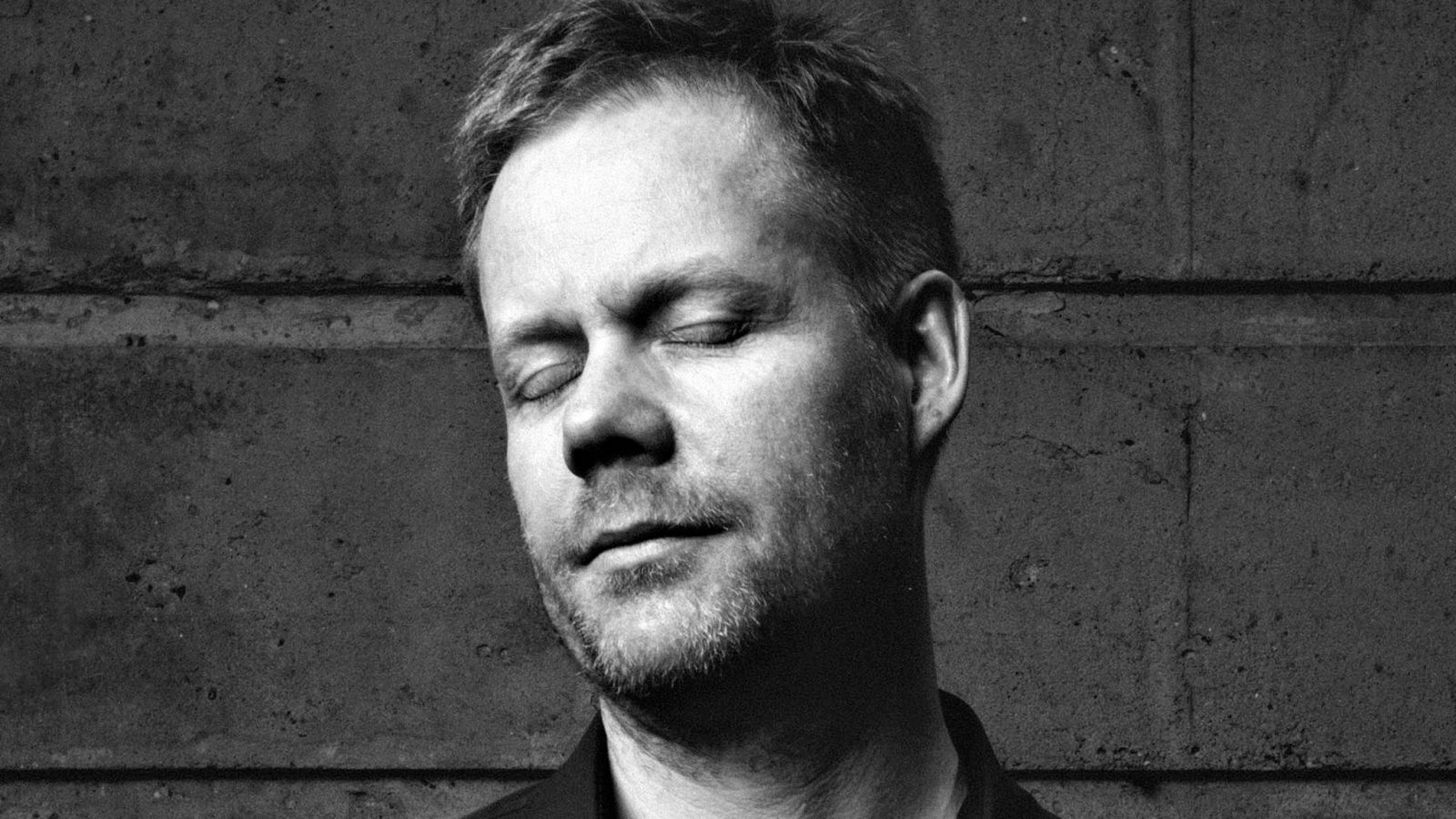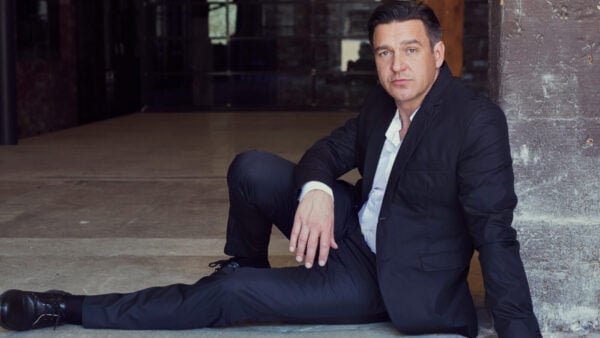
Max Richter
Composer Max Richter wants people to doze off during his latest composition, SLEEP, which he calls an “8-hour lullaby.” SLEEP has its world-premiere performance this September in Berlin, Germany, coinciding with the release of a full recording of the piece (as well as a condensed, one-hour version) by Deutsche Grammophon.
WFMT spoke with Max from London to learn about this curious new project. He explained some of his inspiration for SLEEP. He also dispelled some of the myths being circulated by the media that he’s attempting to break records with the “longest ever piece of classical music,” as the Telegraph UK claimed in a recent feature.
WFMT: What is some music that you’ve attended live that’s put you to sleep in the past?
Max Richter: In a good way or a bad way? [Laughs] Well, there are some composers who I kind of grit my teeth through – and, I mean, that’s just personal preference. I mean, Bruckner comes to mind. Maybe that’s not fair to him, because he just works on a very big scale, but in the sort of Church of Bruckner or Church of Mahler, I’m definitely in the Mahler side, 1000%. I just do feel like those long stretches, where not much happens – I do struggle with them a bit. I’m not sure if I’ve ever really nodded off, but I’ve definitely sort of wished to, sometimes.
WFMT: You’d be totally lying if you said you never took a little “opera nap” once in a while.
Richter: Yeah… I can’t honestly think of specifics, but I mean, the opera is the sort of classic, isn’t it? ‘Cause the thing is, opera houses are sort of comfy, aren’t they? They’re dark –
WFMT: You’ve had a little something to eat, a little something to drink...
Richter: Feeling warm and snug in this sort of red velvet… It’s just so cozy. Of course you’re gonna nod off, yeah.
WFMT: For the premiere of SLEEP later this fall, you’re going to let audiences get very comfy!
Richter: That’s the idea. We’re playing the piece in the round, so the ensemble is in the center of the audience. We’ll be surrounded by approximately 500 beds, and everyone gets their own little bed, and hopefully nod off, and then we play through the night.
WFMT: I can imagine that arranging for 500 beds is a logistical nightmare. Can you tell me a little bit about the logistics that have gone into transforming the auditorium into a musical sleepover?
Richter: Well, we don’t know yet, but we’re going to find out. The logistics of this project – and perhaps I was naïve going into it – have been very challenging. Normally when you do a take of something in the studio it will take like, I dunno, five to ten minutes or something, and when you listen to that take, it takes another fifteen minutes, maximum. In this case, of course, you’ll do a take and it will be an hour, then if you want to listen to the take, then that takes another hour. So the days just go by doing seemingly small tasks. But because the objects are so big, everything just gets really stretched out. It’s a bit like that “slow food” movement – slow record production movement is what we’re doing.
WFMT: Hearing about this project, I was reminded of certain pieces of modern classic art that some people will see in a contemporary gallery and think, “Why is this art?” Do you think people will react that way to this piece?
Richter: I feel like, with the duration of the piece – it’s not some sort of record attempt. It’s the length it is because that’s the length, approximately, that we’re supposed to sleep. So it’s functional music in this really classical sense: it has a function, and its function is that it accompanies a night’s sleep. So, I mean, it isn’t really anything beyond that. I mean, I do see the connection to the durational movement in the fine arts. There’s been a sort of resurgence of this work, which has its roots in the early ‘60s – y’know, someone like Marina Abramović, for example, with the emphasis on long spans of time and relatively small groups of material to focus on during that period. It’s classic minimalism, really. And La Monte Young and Terry Riley and all these sorts of people were doing overnight concerts at that time. So I think it’s a set of ideas which is finding a new audience.
WFMT: You mentioned Terry Riley. What other composers have influenced your style – this functional, minimalist musical style?
Richter: Well, Satie was really a visionary. In fact, I heard such an interesting performance of Vexations – not all of it, I have to admit! – but I dipped in and out during a brilliant performance a couple of years ago, and it was such fun. The thing about Satie is, he wanted his music to fade into the background and really be furniture. But the thing is, it’s such charming music, such beautiful music; it’s actually very difficult to ignore! I think that’s the paradox of Satie, and I think he would enjoy that paradox himself.
WFMT: It’s also very difficult to play, despite seeming easy on the surface. It requires a whole different concentration and technique.
Richter: Yes, it’s very easy to play badly. And that’s the thing: we’re accustomed to thinking millions of notes on a page is hard, and it is, often. But the reverse isn’t necessarily true. When there’s not that much data on the page, not that many notes, it becomes much more about intention, concentration, and focus. That was one of the challenges with recording this piece, especially for the strings. Long expanses of not too much happening – that’s kind of a string player’s nightmare!
WFMT: A lot of the music on your album, the full version, is for keyboard instruments. So, in those ways, you are working in the tradition of Satie and Glass in applying minimalism to the keyboard. Can you tell me about the different keyboard instruments you’re using?
Richter: Prepared piano is the sort of central sound – I say “prepared,” but it’s really minimally prepared. It’s a felt piano, with an extra layer of felt between the piano and the strings, so it just has a very dark sound. Next we have a little chamber organ, and various sorts of synthesizers and computers, which are mostly busy doing very low-frequency things. Then the rest of the ensemble is a string quintet and two sopranos. So it’s quite a neat and tidy band – I mean, it sort of has to be, because from a performance perspective, the more folk you have, the more complex the whole thing becomes.
WFMT: So, for the premiere do you have people coming in in different shifts?
Richter: Well, what I’ve done is I’ve structured it in such a way that people do get breaks, individually, so not everyone is on the whole time. It’s actually just one to a chair, which is, y’know – I wasn’t sure if I was going to be able to manage it, but it turned out just fine. Except me: I have to play the whole time! [Laughs] That’s my own fault.
WFMT: How are you going to personally prepare to play all night long?
Richter: I’m going to sleep a lot beforehand and try to get plenty of rest, basically. I do think the best thing would be to come in from another time zone and just sit down, but that would be even worse, probably.
WFMT: What kind of music do you yourself enjoy? Not necessarily minimalist music, but any kind of music that you listened to as you found your own voice as a composer.
Richter: I have a lot of different musical enthusiasms. I mean, probably the same ones that most composers would cite: Bach, obviously. You know, he wrote the language, so that’s where it all starts. Hardly a day goes by where I don’t play something on the piano of Bach’s. Talking about Bach is like talking about Mt. Everest – he’s just there.
So, there’s Bach. Having had an English music education, Purcell is hugely important, and I love Purcell’s music. For later composers, Schubert is a big hero of mine, in a way, because of his directness. Also, his harmonic language I love. Then, in the twentieth century, Stravinsky, obviously; it’s kind of an obsession. Then, a little later, my teacher Berio – I love his music, because it’s this very complete and omnivorous way of thinking about music and music history.
Then the minimalists were very important for me and still are. So it’s a whole range of things.
WFMT: What would you say to people who write off minimalism?
Richter: The thing is, the world is big, and it’s not like we all have to like everything. It’s personal preference, really. I would say that one of the things about minimalism is that it is embedded in the tonal system. The tonal system itself, it grows out of physics. It’s not an opinion; it just is like that. So in that way, it’s a sort of outgrowth of the harmonic series. So, for me, it’s very persuasive as a way of structuring a language, because we inhabit the same physical universe as the one that gave rise to the harmonic series and the tonal system. So, for me, I don’t need to ask questions about it.
Of course, I very much appreciate atonal music and all sorts of other music, but for me, one of the persuasive things about minimalism – or what we might call classical minimalism – is its enlargement and refinement of what’s possible within tonal music. It is a fascinating thing, because when it started in the early ‘60s, generally speaking, the European-American, avant-garde, modernist culture was so anti-repetition, anti-legible structures, it was what you might call anti-“whistleability” and easy decoding. And minimalism broke every one of those rules, and it was incredibly subversive, actually. If we think of Schoenberg as a historical figure, with this historical project to revolutionize music, thinking of himself as writing this language that would last for hundreds of years – well he did do that, in some ways. But equally, the minimalists have done it, arguably even more influentially.
So I think it’s interesting. What I’d say is that there’s room for all sorts of plants in the garden. I think the prescriptive attitude of “This music is better than that music” for some abstract, philosophical reason – I’m a bit suspicious of that, honestly. I think it’s about music as a conversation between the composers, the performers, the listeners. I think that’s really the interesting thing, and that abstract, philosophical reasons are, for me, less interesting.
WFMT: Have you had any “Aha!” moments or encounters with specific pieces of music or composers?
Richter: There’ve been many, but two come to mind in my own personal history. First of all, being taken as a kid to Fantasia, and hearing the Rite of Spring in the dinosaur sequence. I was about six or something, that I was so freaked out and blown away that I basically had a tantrum and forced my mother to take me back to the same show so I could hear this incredible music again. And as a kid, I probably hadn’t heard anything later than Schubert at that point, so it really blew my mind. I still love Stravinsky; he’s such a brilliant composer.
So that’s one. And the second one actually involves Philip Glass, and it happened a bit later, when I was about 12. I was practicing the piano and stuff as a kid, and we had a milkman who delivered the milk in the morning. In the afternoons, once a week, he’d come back and be paid, and stuff. He’d hear me practicing, and he decided to take me on as a project. At that time, being a milkman was one of those jobs you could do while secretly being a novelist or a painter or something like that. And this guy was a composer; he was into music. He was collecting all these early recordings of Philip Glass on vinyl, which nobody really knew about in the UK – and certainly, I, as a 12-year-old wouldn’t know.
So he would deliver the milk and the latest Philip Glass on vinyl in the morning! So I heard music – Contrary Motion, Music in 12 Parts, Music with Changing Parts – as this 12-year-old kid who knew nothing. There I would sit for hours on end, just going through this material, and it really did blow my mind. And I think that’s one of the things Glass’s music can do, because it’s deceptively simple. It comes across in this very plainspoken way, and you think, “Yeah, I know what that is.” But it’s actually a lot smarter than it appears, and I think that’s one of the great things about it. I can’t remember who said that about Wagner, y’know – that his music is better than it sounds. But Glass absolutely falls into that category, too; he’s a really, really smart composer. His sense of architecture and drama is very great, and very fine, I think.
WFMT: What would you say to someone who is suspicious that a project like this – an eight-hour-long piece meant to put listeners to sleep – is only conceived as a kind of gimmick or novelty piece?
Richter: The first thing, really, is that the piece is an experiment and an investigation into how music can coexist or operate within this other state of consciousness – which, y’know, neuroscience tells us is actually not a passive state. It’s very busy, but just busy in a different way…
And I guess the second thing is that the duration isn’t meant to be something like a world record attempt. If I really wanted to do that, I’d just put a repeat sign at the end and make it 16 hours! For example, there’s that Cage piece, As Slow as Possible, that I think is due to finish in about 600 years’ time.
So that’s neither here nor there. It’s functional music, in the classical sense, and it’s the length it is because it’s intended to be slept through. It’s as simple as that, really; it’s to accompany the act of sleeping.
For more information about composer Max Richter, visit his website.







